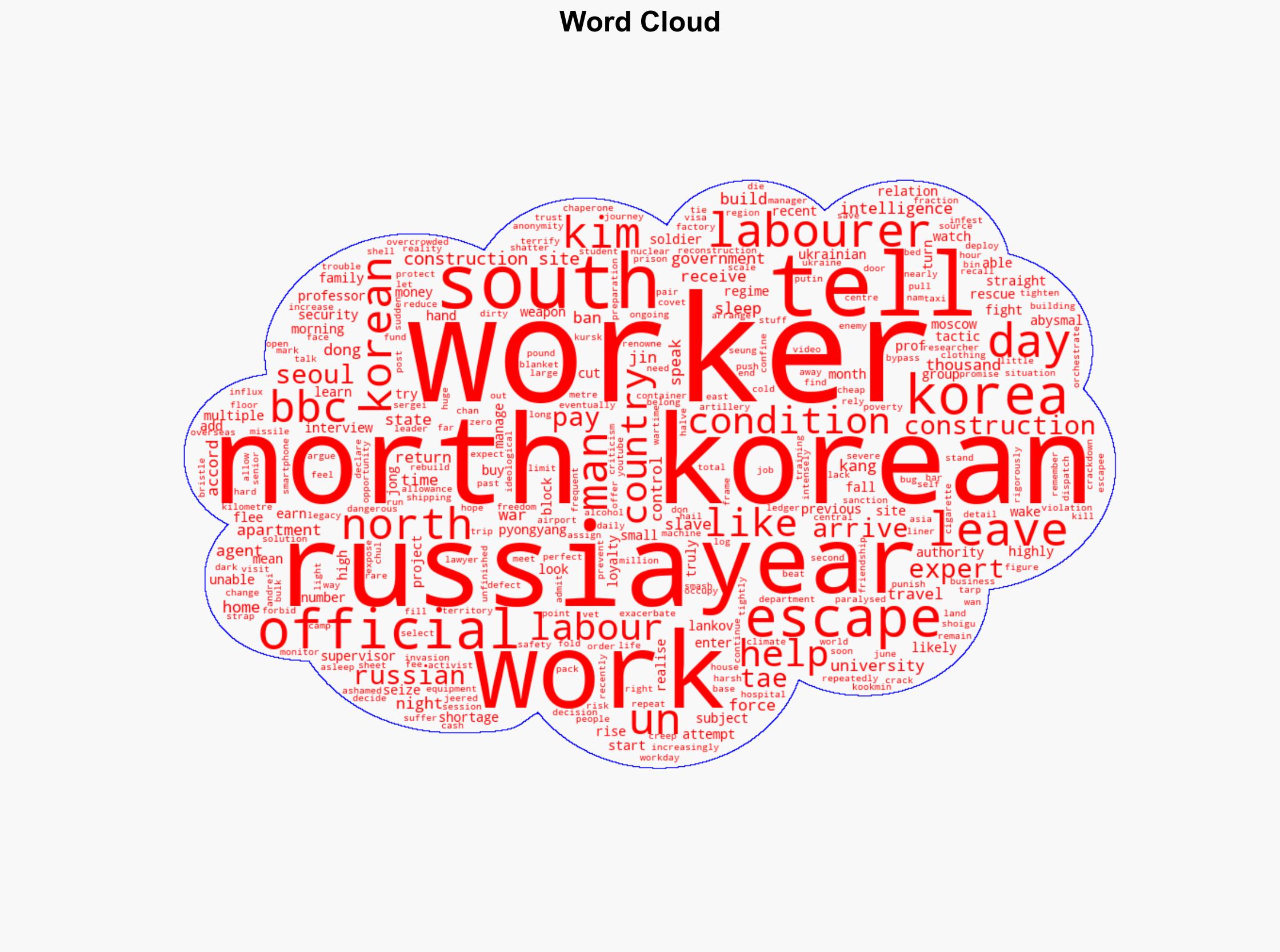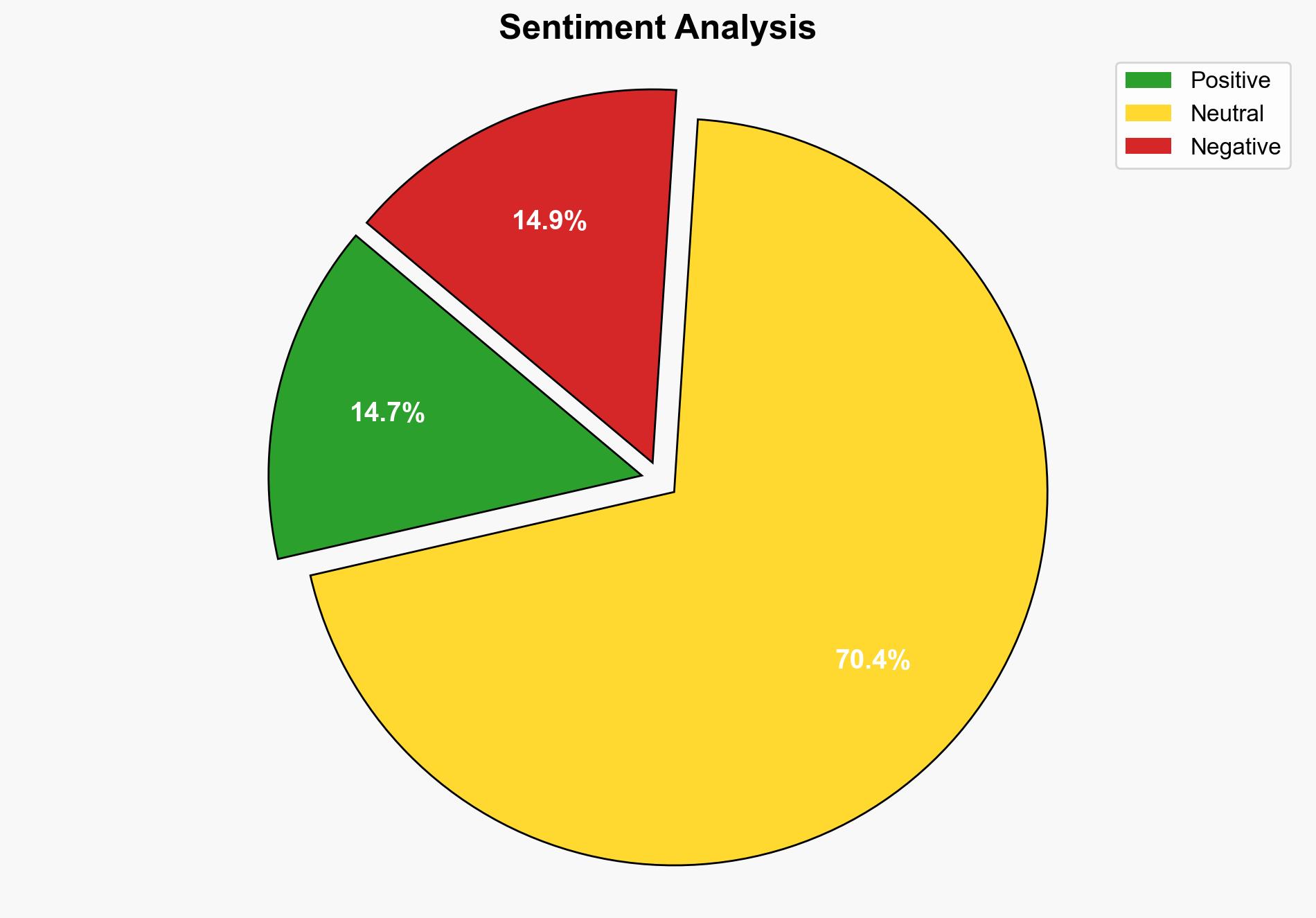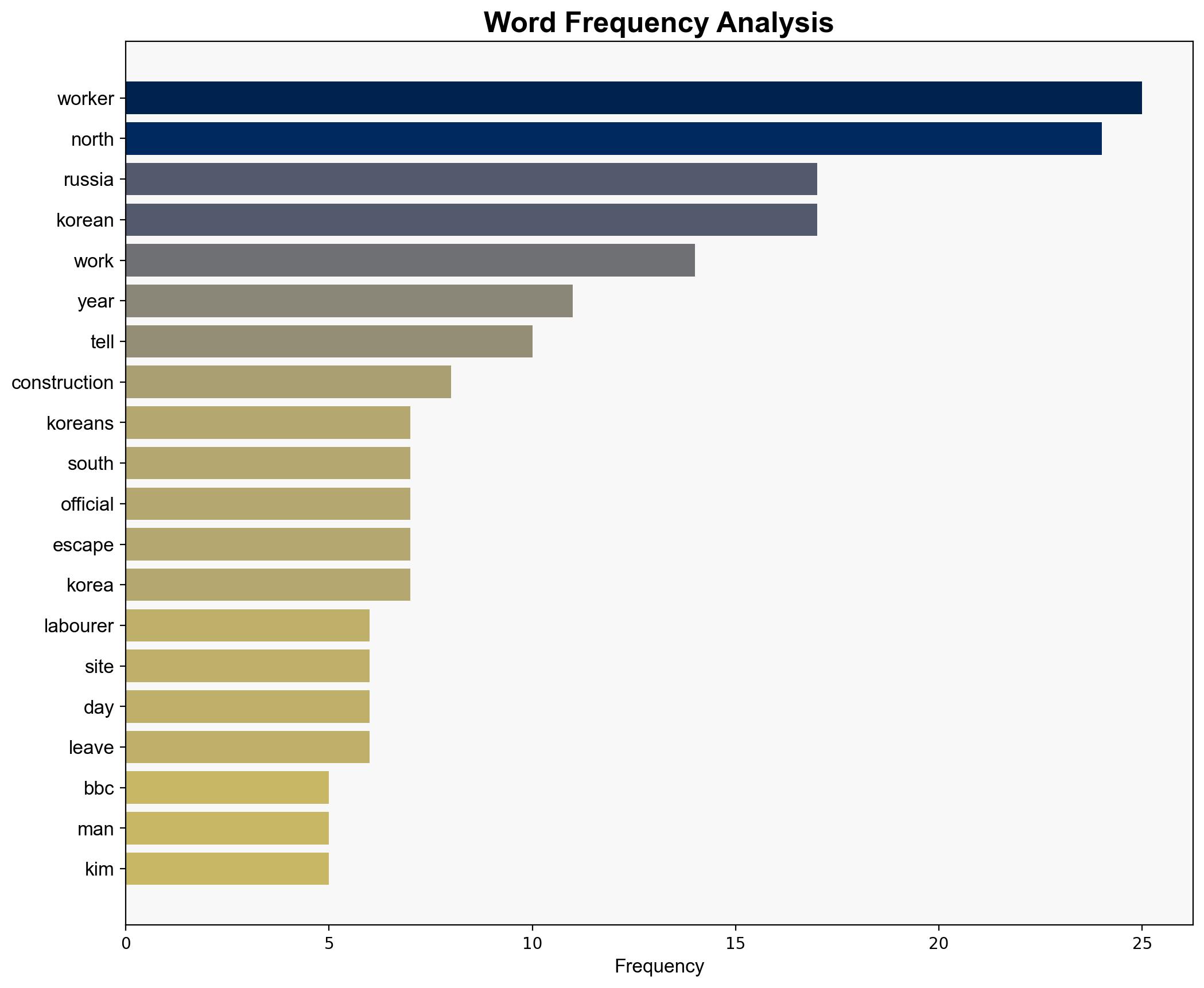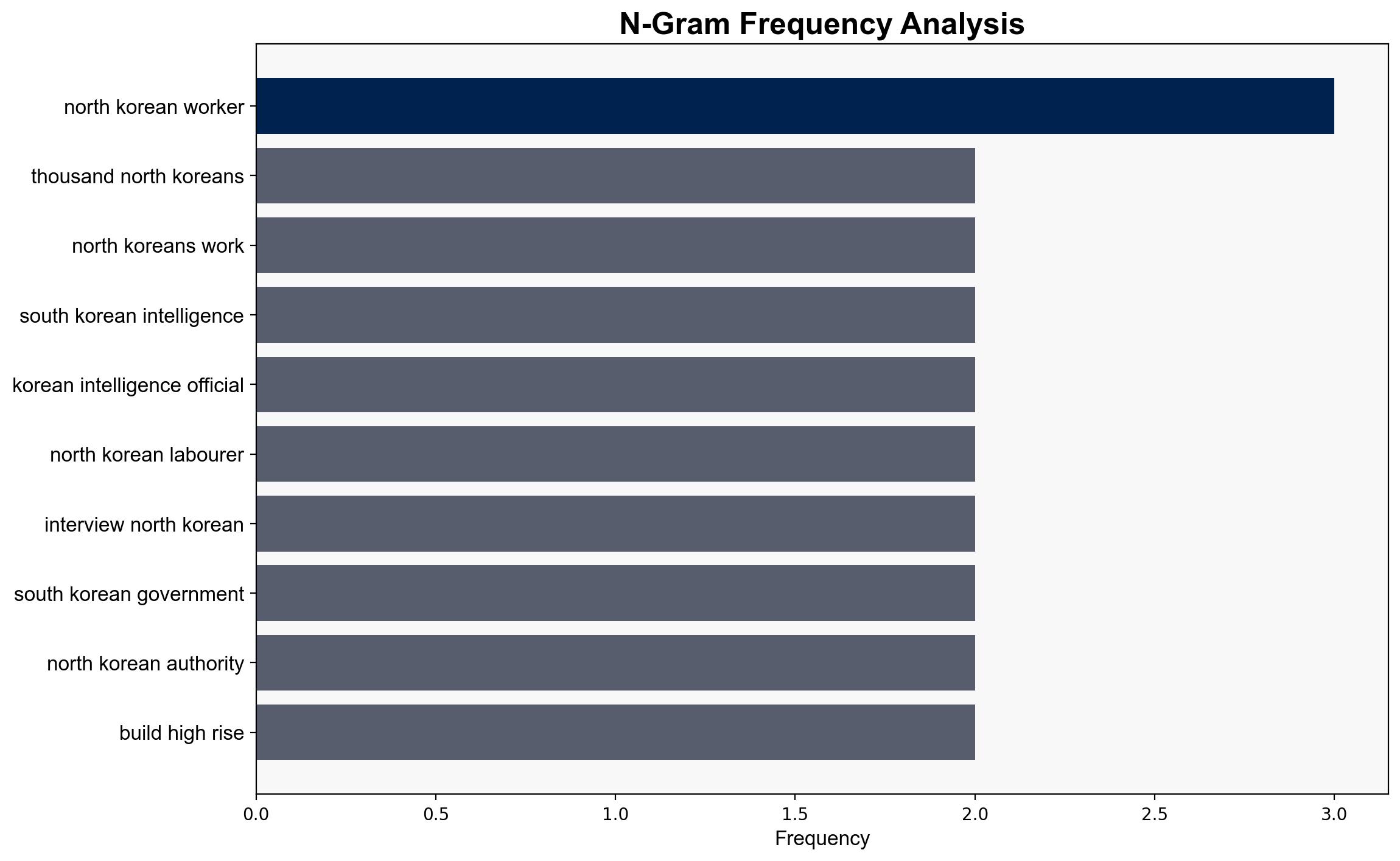North Koreans tell BBC they are being sent to work ‘like slaves’ in Russia – BBC News
Published on: 2025-08-12
Intelligence Report: North Koreans tell BBC they are being sent to work ‘like slaves’ in Russia – BBC News
1. BLUF (Bottom Line Up Front)
The most supported hypothesis is that North Korea is exploiting its labor force by sending workers to Russia under coercive conditions to generate revenue for its regime, while Russia benefits from this arrangement to address its labor shortages exacerbated by the Ukraine conflict. Confidence level: High. Recommended action: Increase diplomatic pressure on both Russia and North Korea through international coalitions to address human rights violations and enforce UN sanctions.
2. Competing Hypotheses
1. **Hypothesis A**: North Korea is deliberately sending workers to Russia under coercive conditions to earn foreign currency, which is then used to support its regime and military ambitions, including nuclear development.
2. **Hypothesis B**: Russia is primarily exploiting North Korean labor to fill its labor shortages due to the Ukraine conflict, with North Korea’s involvement being a secondary factor driven by economic necessity rather than strategic intent.
Using ACH 2.0, Hypothesis A is better supported due to the consistent pattern of North Korea leveraging its labor force for foreign revenue, historical precedence of similar practices, and the alignment with Pyongyang’s strategic objectives.
3. Key Assumptions and Red Flags
– Assumptions for Hypothesis A include the belief that North Korea prioritizes regime survival and military enhancement over human rights.
– Assumptions for Hypothesis B include the notion that Russia’s labor needs are the primary driver of this arrangement.
– Red flags include potential underreporting of the scale of labor exploitation and the possibility of misinformation from both North Korean and Russian sources.
– Missing data: Detailed financial transactions between Russia and North Korea, and the exact number of workers involved.
4. Implications and Strategic Risks
– **Economic**: Continued labor exploitation could lead to increased sanctions against both countries, impacting their economies.
– **Geopolitical**: This arrangement may strengthen the Russia-North Korea alliance, complicating diplomatic efforts in the region.
– **Human Rights**: Ongoing human rights abuses could lead to international condemnation and potential interventions.
– **Escalation Scenarios**: Increased international scrutiny could prompt North Korea to accelerate its nuclear development as a deterrent.
5. Recommendations and Outlook
- Engage in multilateral diplomatic efforts to pressure Russia and North Korea to comply with international labor standards.
- Enhance intelligence gathering on financial transactions to track and disrupt funding streams supporting North Korea’s military ambitions.
- Scenario Projections:
- Best Case: International pressure leads to improved labor conditions and compliance with sanctions.
- Worst Case: North Korea accelerates nuclear development, and Russia deepens its reliance on North Korean labor.
- Most Likely: Continued exploitation with incremental international responses.
6. Key Individuals and Entities
– Kim Jong Un
– Sergei Shoigu
– Andrei Lankov
7. Thematic Tags
national security threats, human rights violations, international sanctions, labor exploitation, North Korea-Russia relations




